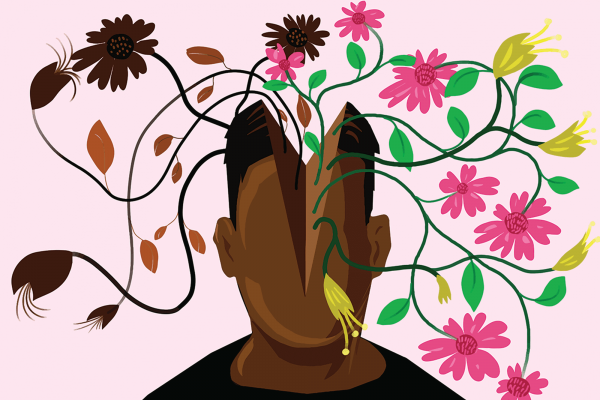I RECENTLY LISTENED to a riveting podcast with therapist Chichi Agorom, author of The Enneagram for Black Liberation, who centered Black liberation and well-being. She described her own desire in our society to be known beyond the “resilient Black woman” label, and she wanted to cultivate spaces that embraced Black liberation in the form of ease, rest, and wholeness.
In a world that can often reduce Black people to stories of grit and resilience, it took time for me to realize how resilience could be a constricting filter in telling our stories. Resilience undoubtedly makes for compelling drama, because we love a good comeback story. We feel buoyant when hearing about the person who spent 10 years in solitary confinement but somehow integrated back into society. Or the refugee who fled war-torn circumstances and, against all odds, made a life for themselves and future generations in a new land. Or the inner-city student who graduated first in their class despite an underfunded school. Hollywood makes a living from stories like Homeless to Harvard and The Pursuit of Happyness.
While we all need stories of hope, reducing groups of people to just the struggle is a way of shrinking their stories. In her popular Ted Talk “The Danger of a Single Story,” Nigerian author Chimamanda Ngozi Adichie described her first encounter with her American college roommate. Her roommate was surprised that, as a Nigerian, Adichie enjoyed listening to popular singer Mariah Carey or that she even knew how to use basic appliances. Yet, in an almost confessional tone, Adichie described her own trip to Guadalajara, Mexico. Prior to visiting, she had envisioned people in Mexico desperately clawing their way out to cross the U.S. border. Instead, what she witnessed was a city with beautiful people, thriving businesses, and a deeply rooted culture.
In social psychology, the inability to assign complex emotions to whole people groups is to consider them a little less human. Complex emotions go beyond glad, mad, and sad into feelings of shame, regret, jealousy, and even awe and wonder—things that can lead to deeper aspirations in the world. In my own work as both clergy and social worker, I need to be mindful of when the stories of others I serve may lack dimension. Like when I felt a subtle hint of surprise when my colleague at Exodus Transitional Community, Ray Tebout, discussed his journey back home from prison, saying, “I don’t owe a debt to society, but I am trying to make good with the people I harmed.”
It was transformative to hear this, because I’ve seen the burden those impacted by the system bear in our society. Yet somehow Ray had internalized grace and forgiveness and refused to live under society’s second prison of shame and stigma. He had also reclaimed an identity as someone who was worthy of ease, rest, and contribution, outside of a single story. He’s Exodus’ human resources director, and he takes workplace well-being seriously.
When we remember that people experience complex feelings and are worthy of a whole life, we can behold them in a glory beyond their struggles. Our country needs a better story than rewarding the resilience of those who survive the very injustices it creates—a story of wholeness as an abundant dimension of true liberation. It begins with me, with marginalized people in our society seeing themselves beyond the story of struggle, and with a society that upholds this birthright.

Got something to say about what you're reading? We value your feedback!






